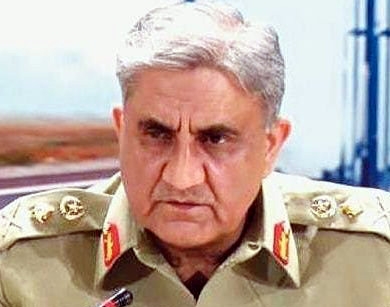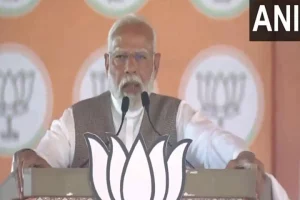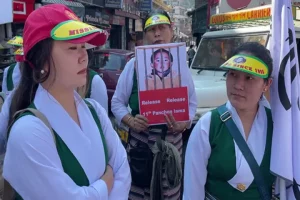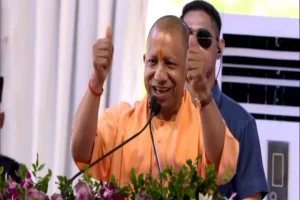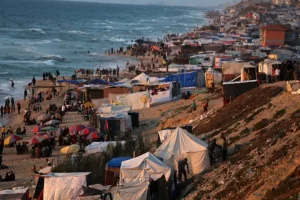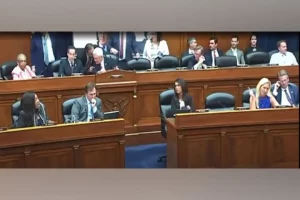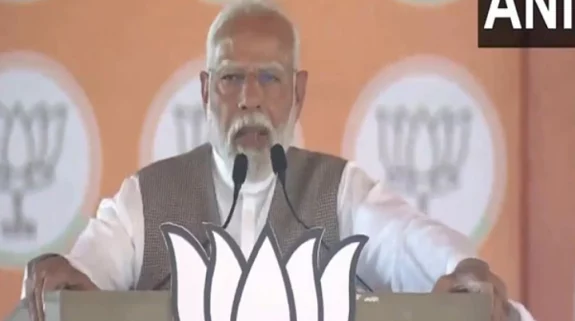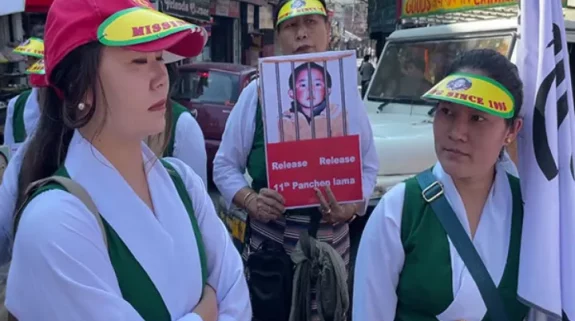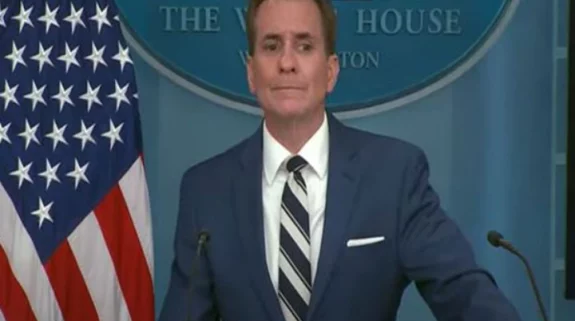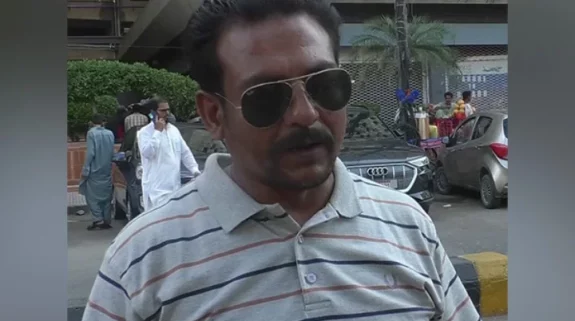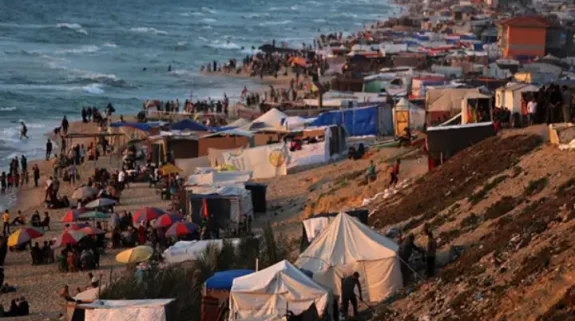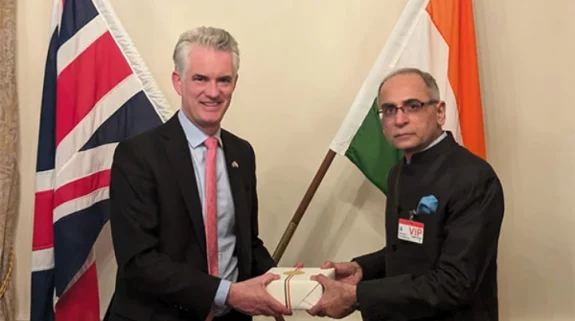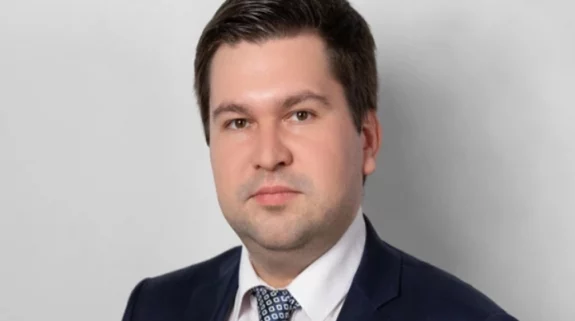By Mrityunjoy Kumar Jha and Atul Aneja
Violent protests have paralyzed Pakistan for the past few days. The architect of these demonstrations is the Tehreek-e-Labiak Pakistan (TLP) party, which is now a force to reckon with in Pakistan’s domestic politics.
During the clashes between the police and the TLP supporters, a large number of policemen were injured, few killed and many were taken hostage by TLP gunmen. Pakistan’s Interior Minister Sheikh Rashid announced on Monday that that after the first round of talks with the recently proscribed Tehreek-i-Labbaik Pakistan (TLP), 11 policemen who were taken hostage in Lahore have been released. He added that the second round of talks with the banned fundamentalist group TLP, will continue on Monday.
It is strange that on April 14, the same Interior Minister Sheikh Rashid had banned TLP and its leaders. Bur ironically, those who were banned continued with the sit-in. Flouting the writ of the state with impunity, they mocked at the governmental ban on social media for a few hours, ahead of Friday prayers.
Also read: Why Imran Khan’s ban on TLP is an eye-wash
Interestingly, Imran Khan’s military backed government had signed an agreement with the TLP in November last, where it agreed to expel the French ambassador by February. It had done so after the TLP launched a massive protest in November last year following French President Emanuel Macron’s defence of the re-publication of Prophet Mohammad’s cartoons in French magazine. The deal was subsequently extended to April 20.
In the wake of the turmoil on the streets of Lahore, Pakistani analysts are wondering why army chief General Qamar Javed Bajwa is currently maintaining a stony silence? After all, Pakistan is known for its well established ‘civilian–military hybrid rule.’ Why is the army then not being called in to deal with the situation?
Several questions are arising: Is the army divided, with supporters and detractors preoccupied with fighting their own internal battles behind the scenes? Is Pakistan heading for a bloody civil war with unpredictable consequences? Worst, are Jihadis with the help of a powerful section of the radicalised military getting ready to control Pakistani nukes, posing a top global security concern?
Pakistani observers point out that the TLP was nourished by the military establishment for its vested interests. In 2017, when TLP had organised a 21-day long protest against Nawaz Sharif’s government, a top officer of the spy agency ISI brokered a deal between the TLP and the then Nawaz Sharif's government. Major General Faiz Hameed of ISI, now the current chief of the notorious agency, signed the agreement as facilitator.
But latent fault lines have apparently subsequently surfaced among the army’s top brass. With General Bajwa getting an extension till 2022, many ambitious generals, who would now retire, and out of contention for apex post may have revolted, backed by the TLP’s street power.
There is speculation that Gen. Hameed, Bajwa’s protégé has now mutated into a competitor for the military’s top most post. Many younger officers are also unhappy with Bajwa’s decision to revive the ceasefire agreement with India, thereby providing the basis for cooling the so-called Kashmir Jihad.
Unsurprisingly, many serving commanders are also not happy regarding the ban imposed by Imran Khan’s government on the TLP, which appears to have infiltrated into the military. A viral video is making the rounds on social media where a Pak Army soldier is seen “appealing” to Bajwa to stop action against Islamist TLP, warning him that if this demand is not met, Pak soldiers could mutiny.
Taha Siddiqui, a Pakistani journalist has posted on twitter that, “This is REALLY scary.” “A Pak army soldier appeals to the army chief General Bajwa to stop action against TLP. He says 45 lovers of Prophet have been killed. He also says if Bajwa doesn’t intervene, then all serving soldiers, who are lovers of Mohammad, will go towards mutiny.”
This is REALLY scary. A #PakistanArmy soldier appeals to the army chief General Bajwa to stop action against TLP. He says 45 lovers of Prophet have been killed. He also says if Bajwa doesnt intervene, then all serving soldiers, who are lovers of Mohammad, will go towards mutiny pic.twitter.com/5AbB4fpjIL
— Taha Siddiqui (@TahaSSiddiqui) April 18, 2021
TLP, appears to have become the face of a cluster of radical parties and groups such Jamaat-e-Islami, Muslim League and Jamiat-e-Ulema Islam, Lashkar-e-Jhangvi and its various sectarian offshoots that were used for waging jihad in India, and the Tehreek-e-Taliban Pakistan (TTP) that was molly coddled as a group of “well-meaning but confused Muslims” until they trained their guns on their benefactors and became “condemned terrorists”.
It may be recalled, during the protests last year that the founder leader of the TLP Khadim Hussain Rizvi called on Pakistan to launch nuclear attacks against France for its alleged act of “Islamophobia” after the European country vowed to fight radical Islamic terrorism. Not only threatening France, in 2018, the extremist cleric also served deadly notice on the Netherlands that an “atomic bomb” could be used after one of the country’s political groups organized a competition to attract the Prophet Muhammad. With their eye on nukes which can threaten the globe, the events in Pakistan are fast mutating from an issue of national security to a subject of global concern.
Also read: Pakistan to ban hardline religious group after violent clashes






